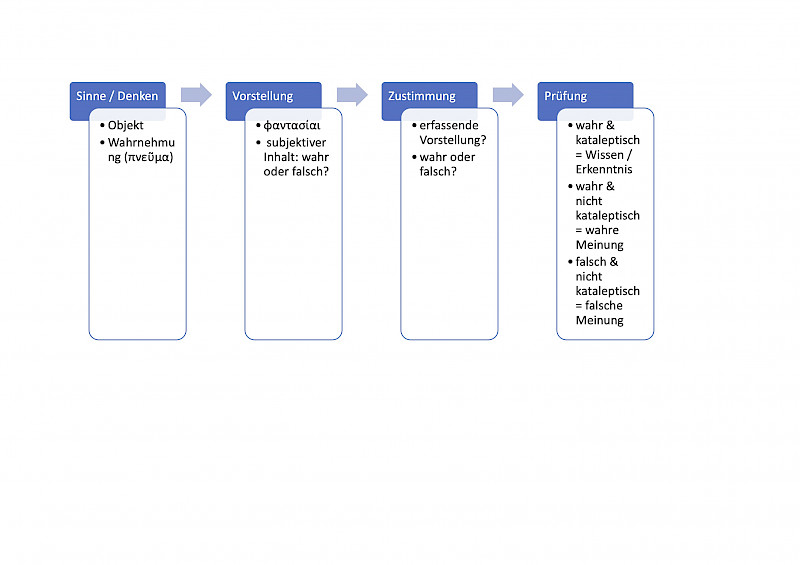What is knowledge1, what is true belief and what condition is constitutive of knowledge or belief? Philosophers such as Parmenides of Elea, Plato or Popper deal with the philosophical meaning of knowledge (ἐπιστήμη) and belief (δόξα). For Parmenides, knowledge is attainable through reason, belief through the senses which can be deceptive though. Plato distinguishes knowledge from justified true belief in Theaetetus 210a-b (the „Gettier-Problem”)2 and defines knowledge in Meno 97e-98a as a consistent and reliable argumentation that stands the test of time. Popper, however denies the existence of certain knowledge by disavowing all knowledge in the tradition of Xenophanes as mere conjecture („conjectural knowledge”).
Thus, while knowledge seems to be objective, certain, true and stable, true belief is characterised by the fact that it is only temporarily certain, subjective, variable and can be easily lost without a claim to universal validity. This flexibility, dynamism and relativity however, is what makes it imperfect in the eyes of Descartes (Meditations II,12). If Descartes is right and knowledge cannot be separated from the „thinking thing” (Med. II,8) and its mind, it is worth taking a look at the Stoic epistemology of a Zeno or Epictetus and their idea of a „cataleptic” review in order to make a distinction between knowledge and true belief.
Diogenes Laertius reports Zeno’s Stoic process of cognition as a multi-stage process that has its beginning in the perception of objects and in the imagination as „mental impressions” (Lives of Eminent Philosophers VII, 45) as so-called φαντασίαι. These impressions are either presentations apprehending a real object or not. They further pass the touchstone of the „apprehensive representation”. Depending on how this touchstone is mastered, it is decided whether it is knowledge, true or false belief. Here is an overview:
- Is the representation (φαντασίαι) true or false?
- Is the representation apprehensive („cataleptic”)?
- If the representation is true and apprehensive, it is knowledge.
- If the representation is true and not apprehensive, it is true belief.
- If the representation is false and not apprehensive, it is false belief.
Thus, it is through the συγκατάθεσις (logical assent) that false belief is avoided due to the fact that the apprehension (κατάληψις) is the gateway to an exact grasping of objects in the world.
We humans can only truly comprehend, gain knowledge and let stable knowledge take root in our mind, if we give assent to a representation.3
Knowledge is a state that is attainable through ratio. It is an exact grasping and apprehension of an object that cannot be shaken by any consideration and as such is to be sharply separated from true belief.
